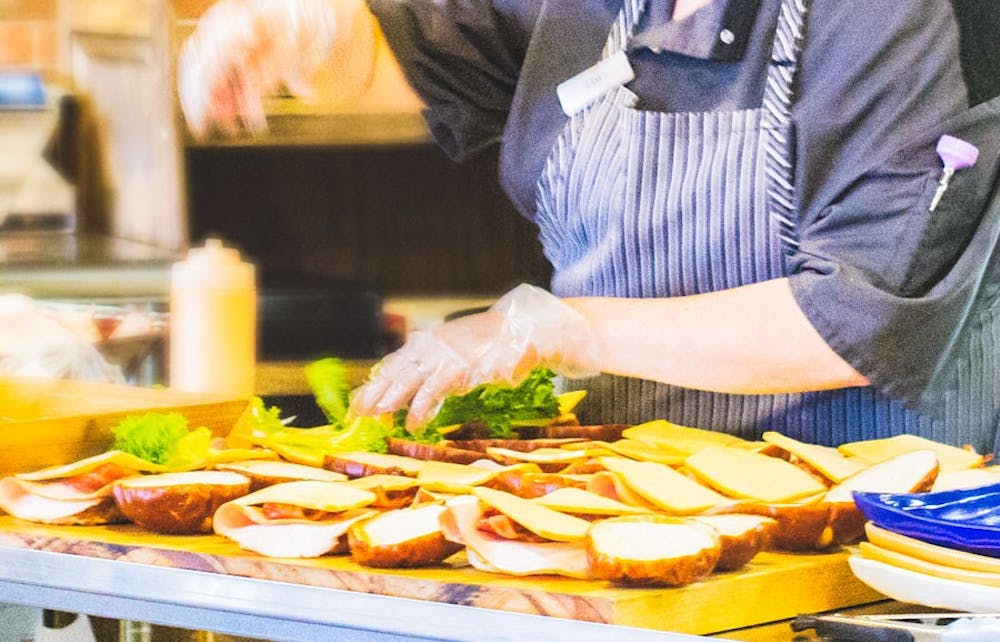By Aubree DeVisser | Echo
Being gluten free is difficult, but it's even more so if you are Megan Jeffers, the gluten-free executive chef for the Dining Commons. Jeffers developed Celiac disease when she was 20 years old, but it wasn't until she was 21 that she decided to take it seriously. She was attending Ball State University at the time and recognized the limited number of food options she had to keep her body healthy.
Jeffers admitted a gluten-free lifestyle was frustrating at first and hard to deal with. However, her actions illustrate she is committed to creating a better and healthier lifestyle, not only for herself, but also for Taylor students.
Just saying "no" to fries is challenging for many people. Having to avoid your own delicious fries is a whole new obstacle. Jeffers has worked diligently to overcome this challenge.
In her dedicated journey to becoming gluten free, she swore off french fries eight years ago.
"At first I was really kind of bitter about it. I have a serious love for food and always have, and coming into this field is going to present a challenge for me," she said. "I'm going to have to really rely on the palate of my staff."
With certain foods being off-limits for Jeffers, she must turn to her staff for taste-testing, trusting their judgment on the food she prepares for the student body.
"I feel like at Taylor, the reason why the special allergen program is where it's at today is because of my issues," Jeffers said. "I hate going somewhere and watching people enjoy great food that I know that I love (but) can't have."
Those who don't have to worry about food allergies have trouble imagining having to cut out pasta or sandwiches entirely. Many students are not aware they have certain food allergies until they reach adulthood. Dealing with that obstacle during college can become overwhelming and frustrating if there are no appropriate selections at many on-campus dining centers.
Jeffers explained how many students are experiencing dietary limitations for the first time as they're away from home. She emphasized these students deserve to have choices just like anyone else.
"This student body seems to try new things and appreciate it more," she said. "All in all, I'm really glad it's an issue I've had to deal with because it has bettered a lot of lives, including my own."
When asked why she continues to work in a tempting and challenging environment, especially when faced with the possibility of making herself sick, Jeffers replied she is determined to make the Dining Commons healthier and more available to meet the needs of others like her.
She emphasized the blessing of being placed in a gluten-filled career. Jeffers reflected on the challenges she encounters while cooking and considers it a gift from God, instead of a penalty.
Jeffers puts in a lot of effort to provide wholesome meals for students on restricted diets, working with at least 15 students last year to ensure they could eat what was served.
"Food is love, that's one thing I always stress," Jeffers said. "The true secret ingredient in everything is love . . . It's a service to others and a service to God."
Jeffers continues to search for new ways to create recipes for people just like her. She believes that with a "proper diet and a balanced lifestyle, you're able to heal yourself."
The DC has labels for the eight main food allergens. This way, students with Celiac disease or any other food allergies can see what their options are. This information is located on the Taylor website under "Dining Commons."



